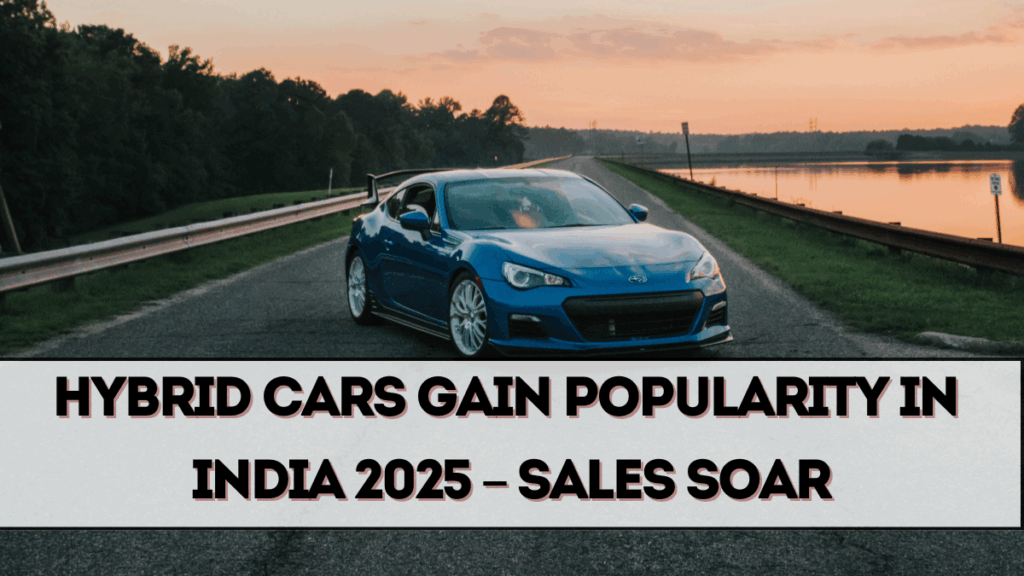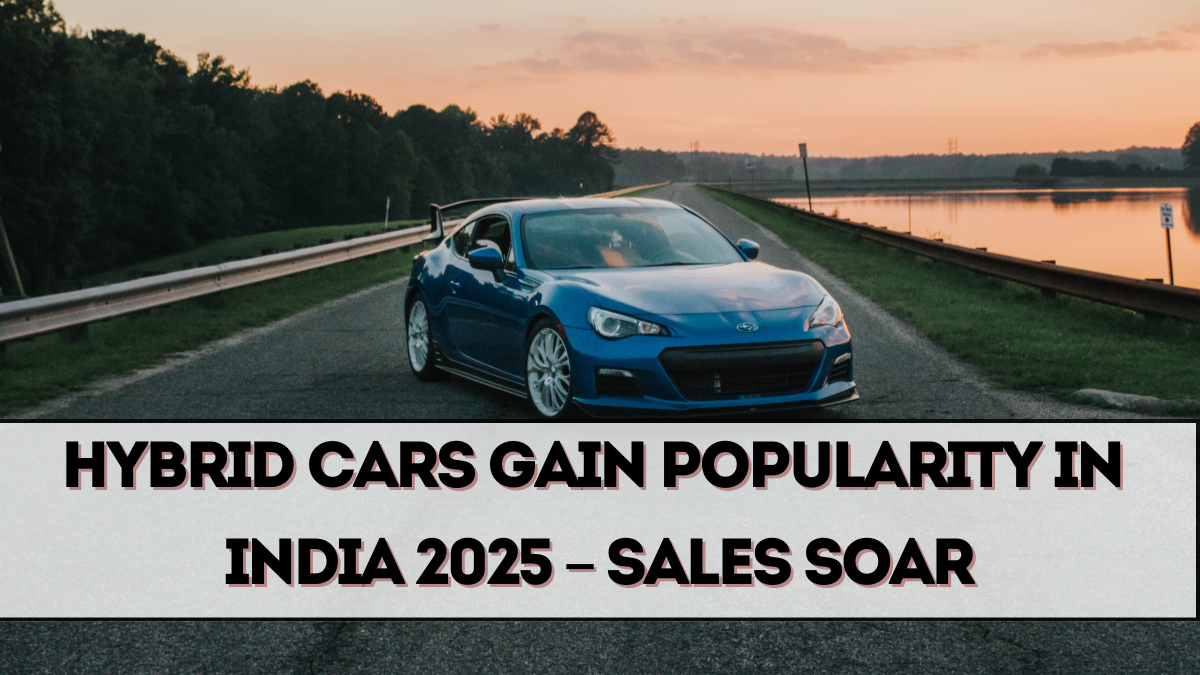The Indian automobile market is witnessing a surge in hybrid car demand in September 2025. As buyers search for a balance between traditional petrol vehicles and fully electric cars, hybrids have emerged as the preferred choice for many households.
This shift highlights India’s unique position, where affordability, range convenience, and environmental consciousness are driving mild and strong hybrid sales.

Why Hybrid Cars Are Trending
There are several reasons why hybrid cars are gaining popularity.
-
EV adoption is still limited by charging infrastructure challenges.
-
Hybrids provide better mileage than petrol cars without range anxiety.
-
Government incentives under GST 2.0 have lowered hybrid car prices.
Together, these factors make hybrids a smart middle ground for Indian buyers.
Brands Leading the Hybrid Surge
Several automakers are capitalizing on the hybrid boom.
-
Toyota: Strong hybrid models like the Innova HyCross and Urban Cruiser Hyryder are in high demand.
-
Maruti Suzuki: The Grand Vitara hybrid and new Dzire hybrid variant are gaining traction.
-
Honda: Expanding its City e:HEV lineup for sedan buyers.
-
Hyundai and Kia: Preparing to launch hybrid SUVs in India soon.
These brands are ensuring hybrids are available in multiple price ranges and body types.
Mild Hybrids Boost Sales
Mild hybrid technology has become a major driver of growth.
-
Maruti Suzuki offers mild hybrid options in the Ertiga, Ciaz, and Baleno.
-
These vehicles deliver better fuel efficiency with minimal cost increases.
-
Mild hybrids appeal to budget-conscious buyers who want eco-friendly options.
The segment is growing rapidly, especially in Tier 2 and Tier 3 cities.
Customer Sentiment
Indian buyers are responding positively to hybrids.
-
Families love the long driving range and lower fuel bills.
-
Urban professionals prefer the eco-friendly image and smooth driving experience.
-
Rural buyers see hybrids as practical because they don’t need charging infrastructure.
This sentiment has translated into record sales numbers in mid-2025.
Impact of GST 2.0
The GST 2.0 reforms have had a direct impact on hybrid adoption.
-
Tax rates for hybrids were reduced, lowering overall car prices.
-
Automakers quickly passed on the benefits to buyers.
-
With lower EMIs, hybrids became more accessible to middle-class households.
This has positioned hybrids as a serious competitor to EVs.
Challenges for Hybrids
Despite strong growth, hybrids face a few hurdles.
-
Some experts argue that hybrids are a temporary solution.
-
Automakers need to balance hybrid development with EV investments.
-
Global supply chain issues for batteries and chips continue to impact production.
Still, the current market shows buyers are ready for hybrids today, even if EVs dominate tomorrow.
Analysts’ Views
Industry analysts see hybrids as critical for India’s transition to clean mobility.
-
EV adoption will take more time due to charging and cost barriers.
-
Hybrids offer an immediate eco-friendly alternative.
-
They also give automakers breathing space to scale up EV production.
Experts predict hybrid sales will continue rising in 2025–2026, especially in urban India.
Future Outlook
The hybrid car trend is set to grow stronger in the coming months.
-
More affordable hybrid hatchbacks are expected.
-
Automakers will add strong hybrid SUVs and sedans.
-
Government incentives may expand to further encourage adoption.
If these developments continue, hybrids could become a mainstream choice for millions of Indian families.
Final Thoughts
The rise of hybrid car sales in 2025 shows India’s unique auto journey. Buyers want affordability, convenience, and eco-friendly options—and hybrids deliver on all three.
While EVs remain the ultimate goal, hybrids are proving to be the bridge technology India needs right now.
For buyers, this means access to efficient and eco-conscious cars without worrying about charging. For automakers, it means a chance to dominate a rapidly growing segment.
FAQs
Why are hybrid cars becoming popular in India in 2025?
Because they offer better mileage, lower costs under GST 2.0, and no charging hassles.
Which automakers are leading the hybrid market in India?
Toyota, Maruti Suzuki, Honda, Hyundai, and Kia are at the forefront.
What is the difference between mild and strong hybrids?
Mild hybrids assist the petrol engine for efficiency, while strong hybrids can run on electric-only mode for short distances.
Are hybrids cheaper after GST 2.0?
Yes, reduced taxes have made hybrids more affordable for buyers.
Will hybrids replace EVs in India?
Not entirely—they are seen as a transition step until EV adoption becomes widespread.
Click here to know more.
